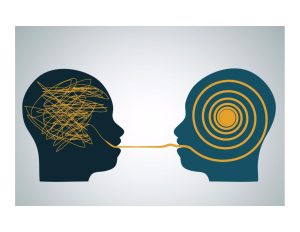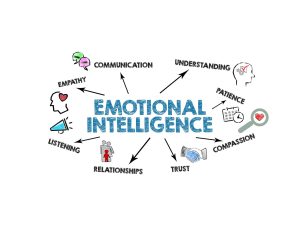
In a world obsessed with productivity, credentials, and technical mastery, one factor quietly determines who rises to the top: Emotional Intelligence (EQ).
It is not a buzzword anymore; it is a measurable, trainable advantage that shapes how we think, lead, and connect.
What Exactly Is Emotional Intelligence?
Emotional intelligence is the ability to recognize, understand, manage, and influence emotions in yourself and in others.
It is the science of human connection, the invisible skill that powers teamwork, leadership, and even personal fulfillment.
At its core, EQ is built on four pillars:
- Self Awareness: noticing your emotions before they control you.
- Self Regulation: choosing how you respond instead of reacting on impulse.
- Social Skills: connecting authentically with others in a way that fosters growth and development.
- Empathy: seeing the world through others’ eyes, and being able to understand the feelings of another person
The Hidden Superpower Behind Every Interaction
Every decision, conversation, or conflict we face involves emotion.
- A 2016 study by TalentSmart found that 90 percent of top performers have high EQ, while only 20 percent of low performers do.
- Another study from Harvard Business Review revealed that EQ accounts for nearly 60 percent of job performance in leadership roles.
EQ is the missing link between knowledge and success.
The Triple Impact of EQ
- At work: teams communicate better, resolve conflict faster, and innovate more freely
- In business: negotiations, client relationships, and sales all depend on emotional attunement
- In life: empathy deepens connections, strengthens trust, and drives personal satisfaction
The result is a more balanced, confident, and fulfilled version of yourself, both professionally and personally.
Candidate A vs. Candidate B
Imagine two job applicants.
- Candidate A: flawless résumé, top university, technical brilliance
- Candidate B: strong qualifications, but also warmth, adaptability, and empathy
Who gets hired? The answer is Candidate B, because emotional connection beats technical perfection.
In an age of automation and artificial intelligence, EQ is the skill that machines cannot replicate.
Where Emotion Shapes Logic
We like to believe we make decisions rationally. Science says otherwise.
Research from neuroscientist Antonio Damasio shows that people with damage to the emotional centers of their brain cannot make effective decisions, even about lunch.
Emotion, it turns out, is not the enemy of logic. It is its foundation.
From choosing careers to forming partnerships, our emotions quietly shape the logic that follows.
The Leadership Advantage
Great leaders do not just think. They feel strategically.
They know their triggers, read others’ emotions, and respond with empathy instead of ego.
This is why companies like Google and Microsoft now integrate EQ development into leadership programs.
When EQ improves, organizations see higher engagement, lower turnover, and stronger performance across teams.
The Before and After Effect
Workplaces that ignore emotional intelligence often look like this:
- Constant conflict
- Poor communication
- Low morale
- Missed opportunities
After integrating EQ training, they transform into environments of collaboration, trust, and motivation where innovation thrives because people feel safe to contribute.
The Cost of Low EQ
Ignoring EQ has real consequences:
- Career stagnation: technical talent without people skills hits a ceiling
- Relationship breakdowns: misunderstandings escalate instead of resolving
- Lost opportunities: inability to connect limits influence and growth
The science is clear. IQ may open the door, but EQ keeps you in the room.
How to Build Your EQ Foundation
The best part is that emotional intelligence is not fixed. It can be learned, practiced, and mastered.
Start with:
- Assessing your current level by noticing your patterns under stress
- Identifying growth areas such as empathy or impulse control
- Practicing daily through reflection before reacting
- Measuring progress through improved communication and calmer responses
Each small moment of awareness compounds into long-term transformation.
The Ripple Effect
When one person develops emotional intelligence, it spreads.
- Teams become more supportive.
- Families communicate better.
- Leaders inspire rather than instruct.
Emotional awareness creates psychological safety, which is the foundation of innovation and trust.
Your Real Competitive Edge
In a world where technical skills are equal, emotional intelligence becomes the true differentiator. It is what turns managers into leaders, employees into innovators, and relationships into lifelong collaborations.
Master your emotions, and you master your future, because at the end of the day, EQ is not jus advantage. It is your real edge!



ان المعلومات و الاراء و الافكار الواردة في هذا المقال تخص كاتبها وحده و تعبر عن وجهة نظره الخاصة دون غيره؛ ولا تعكس، باي شكل من الاشكال، موقف او توجهات او راي او وجهة نظر ناشر هذا الموقع او ادارة تحريره.
ان هذا الموقع و ادارة تحريره غير مسؤوليين عن الاخبار و المعلومات المنشورة عليه، و المنسوبة الى مصادرها بدقة من مواقع اخبارية او وكالات انباء.






